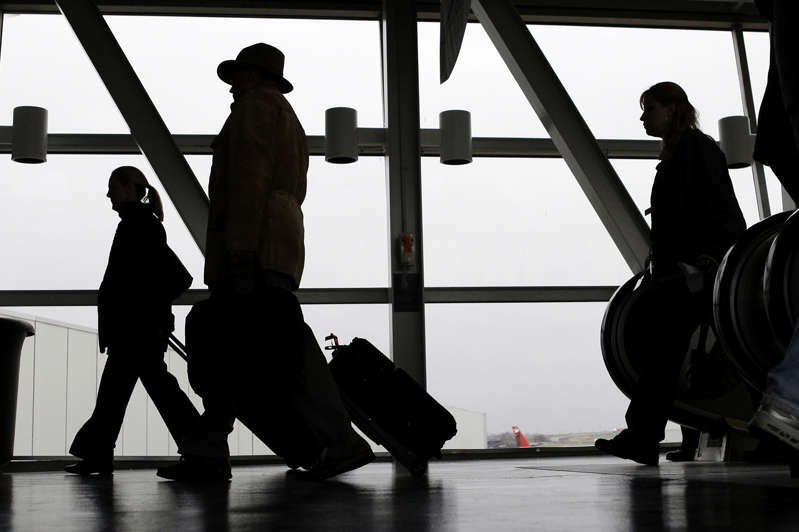by Sara Nelson, published at NBC
Excitement. Joy. Relief. As passengers return to our planes, the emotion is palpable.
But even for passengers who are thrilled to be embarking on a long-delayed vacation or reuniting with loved ones, there’s also an undercurrent of anxiety.
How could there not be? For most passengers, the flight they’re boarding may be the first time in more than a year they’ve been in close company with strangers.
And let’s be real — sitting shoulder to shoulder with a stranger on a plane wasn’t much fun before we started giving one another a 6-foot berth.
With all the ambient stress, it’s easy to see how a conflict can escalate. And conflicts on board are escalating fast. As NBC News reported earlier this week, airlines have referred more than 1,300 unruly passenger cases to the FAA since the start of 2021. In a normal year, we’d see around 150 referrals. Just four months into this year — and with passenger volume still barely half of 2019 numbers — we’ve already seen nearly 10 times the normal number of incidents for a whole year.
What’s causing these incidents? Overwhelmingly, it’s passengers who refuse to wear masks.
It’s a disappointing and all-too-predictable symptom of how the previous administration made the pandemic response a matter of politics, rather than mobilizing the public in shared purpose to take on the biggest disaster relief effort needed in over 100 years.
Flight attendants are no strangers to political debate. Like the rest of the country, we have a diverse workforce. My union alone represents nearly 50,000 flight attendants from every corner of the country. But from Day One of training, we’re taught that we have to leave our differences, political and otherwise, at the airport doors. When it comes to safe'y flying through the air, there’s no room for disagreement.
Flight attendants are aviation’s first responders and last line of defense. We’re thoroughly and carefully trained on safety procedures — and we believe the experts who teach us how the systems of an airplane work and what to do in an emergency.
Flight attendants would never tell you that “whether you put on the oxygen mask is a matter of personal choice.” We understand that clear air turbulence really can throw you against the ceiling without warning, so we don’t say, “Some people believe seatbelts won’t keep you safe, so it’s up to you to decide whether to wear one.”
We’re also trained to help stop the spread of infectious disease. We’re not just enforcing these long-overdue mask policies because we have to: We understand that masks are a way we keep ourselves and each other safe. And we’re grateful policymakers are backing us up.
Despite obstruction by the previous administration, FAA Administrator Steve Dickson took decisive action on Jan. 13 by implementing a zero-tolerance policy for passengers who interfere or refuse to comply with crew instructions. The FAA made it clear there would be no second chances before unruly passengers face fines up to $35,000 and potential jail time. Immediately after his inauguration, President Joe Biden acted to require masks across all public transportation, and the Transportation Security Administration issued a strict enforcement policy. These actions are important. Government can’t send mixed signals about public health and safety.
Yet even while dangerous incidents have skyrocketed — putting flight attendants and other passengers in unfair and unnecessary danger — most Americans are doing the right thing.
Why?
Because we crave solidarity. I’ve seen it over and over again.Our planes are a microcosm — the conflicts that bubble up in our public life always show up in the cabin. And it’s true that we’re seeing more conflicts escalate on board our planes, and those escalations almost all stem from politics. But far more people are standing together and taking action to keep one another safe.
We need to foster and extend this spirit of cooperation. As Mr. Rogers said, “Look for the helpers.” Every person you see wearing a mask in public is a helper.
Flight attendants travel to every corner of the globe. As long as the virus is raging anywhere, it’s a threat to all of us, everywhere. That’s why we’re advocating to waive patent restrictions to speed vaccine production and extend aid to countries where the virus is surging.
But the only way we can get back to normal is together. We’re thrilled to welcome you back onto our flights, but please: Get vaxxed, wear a mask, come fly with us. And follow all crew member instructions.
